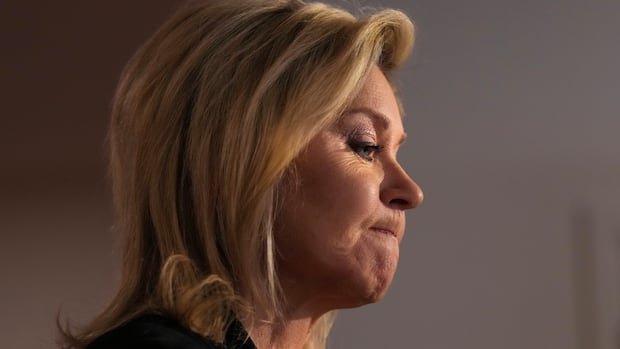Bonnie Crombie has stepped down as the Ontario Liberal Leader following a lackluster result in a leadership review, signaling a challenging period ahead for the party as they embark on the task of selecting a new leader.
Crombie made the decision to resign after garnering 57 percent backing during a mandatory review by delegates at a party event in Toronto. This move followed the Liberals’ disappointing third-place finish in the recent provincial election, which saw Premier Doug Ford secure a majority government.
Initially, Crombie had indicated her intention to continue as leader at the convention but ultimately chose to exit after consultations with the party executive. In a statement, she expressed that despite obtaining majority support, she believed stepping down would facilitate a smooth transition towards a leadership vote.
Throughout the summer, Crombie had been actively campaigning across the province to secure delegate support leading up to the crucial vote. However, internal party divisions emerged, with former rivals and members calling for her removal.
A post-campaign analysis report released earlier criticized Crombie’s team’s strategy during the election period, highlighting both strengths and weaknesses. While acknowledging improvements in seat count and efforts to regain official party status, the report also pointed out shortcomings in campaign strategy and messaging, including focusing on healthcare and allowing Ford to shape the election narrative around trade policies.
Following Crombie’s resignation, the Ontario Liberals are now preparing for their third leadership race since 2018. The party, which held power for over 14 years before their defeat in 2018, has faced consecutive third-place finishes in recent elections. Plans for the new leadership race have yet to be announced.
Political strategist Charles Bird anticipates a prompt search for Crombie’s successor to avoid delays in establishing a new leader’s credibility with the electorate. He also suggests the party may consider candidates outside the current caucus to bring fresh perspectives and generate public interest.
Critics of Crombie, such as federal MP Nate Erskine-Smith, who was a close runner-up in the previous leadership race, have highlighted differing ideological factions within the party. The need for a robust internal debate on the party’s identity and messaging has been emphasized by experts, including University of Ottawa’s Geneviève Tellier.
Moreover, a recent campaign debrief has underscored systemic issues within the Liberal Party, including a lack of engagement with volunteers outside urban centers and an aging support base. Calls for addressing these ongoing challenges have been echoed by Nathaniel Arfin, co-founder of the New Leaf Liberals.
While a new leadership contest may offer opportunities for renewal, Trent University’s political science professor Cristine de Clercy warns of potential internal rifts that could hamper the party’s competitiveness in future elections. Amidst ongoing rebuilding efforts, a smooth leadership transition will be crucial for the Ontario Liberals to navigate these internal dynamics effectively.


